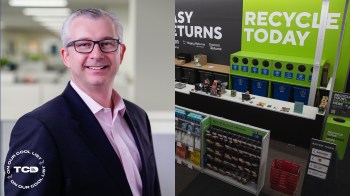A recent poll by Hattaway Communications indicated that most Americans are ready to move on from investing in expansive highways. Some states are still forging ahead with construction plans, though, and the Bipartisan Infrastructure Law appears to be contributing to the issue.
What's happening?
As detailed by the Guardian, a new analysis by Transportation for America revealed that almost $70 billion of the federal funds given as part of the $1.2 trillion infrastructure law have been used for highway resurfacing and expansion.
In its report, the policy organization referred to this as a "climate time bomb," with around 197 million tons of additional carbon pollution projected to be released into the atmosphere by 2040 if states continue down this path. So far, only one-fifth of the money has gone toward public transit.
"Nothing is fundamentally changing in terms of modes of transport. This much money going into highway expansion is, for one, a liability into the future, and two, it just doesn't work. We've been expanding highways for decades on decades, and everyone consistently finds themselves stuck in traffic," Transportation for America policy associate Corrigan Salerno told the Guardian.
Why is this important?
Gas-powered vehicles produce thousands of pounds of pollution linked to respiratory issues like asthma, and adding more cars to the road could make highway travel even more risky. The American Public Transportation Association (APTA) found that people reduced their chances of being in a crash by 90% when taking public transport instead of a car.
Then there's the cost of car ownership, with the APTA pointing out that the typical household in the U.S. could save more than $13,000 each year by removing a car from the mix in favor of public transit.
Low-income areas and those that are predominately populated by groups with less political representation, such as Latino, Black, and many immigrant communities, are also disproportionately targeted by highway expansion plans.
In April 2022, the Guardian reported that the Biden administration had begun a civil rights investigation into a highway expansion project in Houston that would've displaced thousands of people and destroyed hundreds of schools, businesses, and churches.
"It's just plain Jane boring lanes, more and more lanes," structural engineer Fabian Ramirez told the outlet at the time. "There's no train, there's no bus, there's no anything that supports mass transportation."
The project eventually moved forward after negotiations — a decision that was considered unsatisfactory by community groups and residents, according to the Associated Press.
What can be done about the allocation of funds?
Getting involved in local climate issues, making your voice heard by supporting pro-environment candidates in state elections, and talking with loved ones are ways to help advocate for the funds to be allocated toward less polluting infrastructure as intended.
A U.S. Department of Transportation spokesperson pointed out to the Guardian that the Biden administration has greenlit "the largest investment in public transit in American history, the largest investment in passenger rail since the inception of Amtrak, [and] record levels of funding to support active transportation — like walking and biking."
"So much of the decision-making falls to state departments of transportation," TransitCenter research and policy manager Mary Buchanan added. "There are essentially 50 opportunities to get this right, I guess, or to potentially get it wrong, in terms of how money is being spent."
Join our free newsletter for cool news and actionable info that makes it easy to help yourself while helping the planet.








